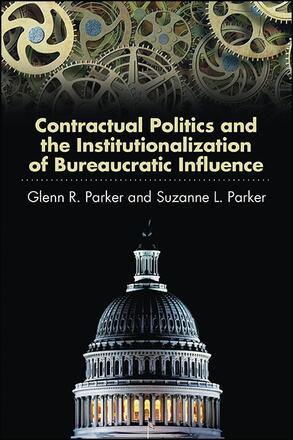
Contractual Politics and the Institutionalization of Bureaucratic Influence
Alternative formats available from:
Analyzes long-term interest group/party alliances, with a focus on the part played by federal advisory committees.
Description
This book sheds light on the dealings between special interests and political parties by challenging three long-standing assumptions: that transactions between interest groups and parties are quid pro quo exchanges, such as the buying and selling of legislation; that the interrelationship between bureaucrats and interest groups is accommodating and friendly; and that special interests are single-minded in their pursuit of favorable policies, specifically legislation and regulations. The authors argue that political transactions are organized through durable informal agreements between interest groups and political parties, whereby parties obtain a dependable source of long-term campaign funds, and interest groups gain enduring favorable treatment in the political process. In response to interest group demands, legislatures such as Congress establish quasi-governmental appendages to federal agencies that oversee the administration of programs prized by special interests—namely, federal advisory committees. The authors examine the complex relationship between the establishment and influence of thousands of federal advisory committees and long-term interest group contributions to political parties.
Now retired, Glenn R. Parker was Distinguished Professor of Political Science at Purdue University and is the author of many books, including Capitol Investment$: The Marketability of Political Skills. Suzanne L. Parker, also now retired, was Associate Professor of Political Science at Purdue University. Together they have coauthored Factions in House Committees.
Reviews
"Parker and Parker utilize data collected under the Federal Advisory Committee Act to support their argument that implicit political contracts represent a cost-effective mechanism for groups and parties to structure group influence. This argument presents an elegant contribution to a question interest-group scholars have been tackling for decades: the relationship between interest group contributions and political influence. Historically, scholars in this area have looked to the relationship between campaign contributions and congressional votes with mixed results; this text offers a new direction. " — CHOICE
"This book is the single best study of federal advisory committees, with reams of data about them. It is also one of the best books on contractual politics, pulling together a wealth of ideas about the utility of that approach, by scholars who really understand it well. " — Paul Teske, author of Regulation in the States